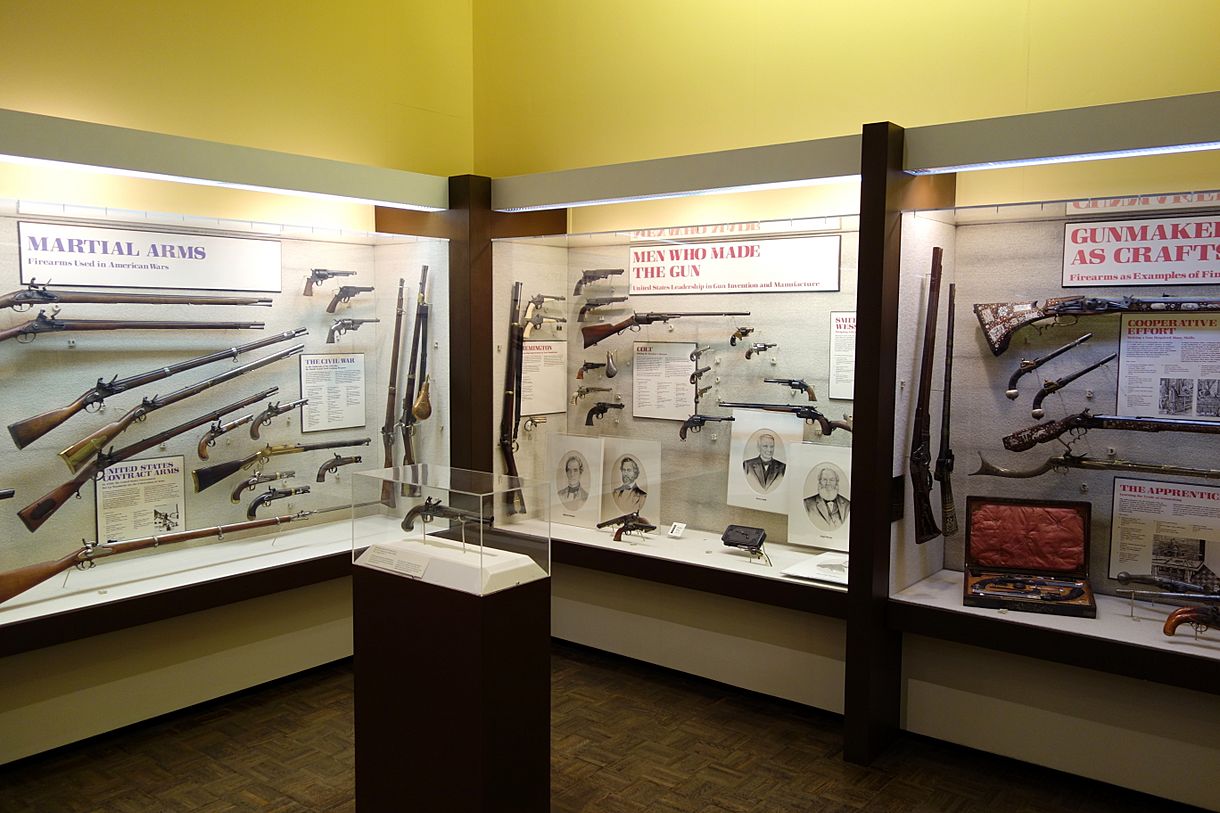1792 contract rifle facts for kids
Quick facts for kids 1792 contract rifle |
|
|---|---|
|
Several contract rifles at the Huntington Museum of Art
|
|
| Type | Muzzle-loading rifle |
| Place of origin | United States |
| Service history | |
| In service | 1792–? |
| Wars | War of 1812, Mexican–American War, American Civil War |
| Production history | |
| Manufacturer | Primarily Pennsylvania gunsmiths. |
| Unit cost | $12 |
| Produced | 1792–1794 |
| No. built | approximately 3500 |
| Specifications | |
| Barrel length | 42 inches |
|
|
|
| Caliber | .49 |
| Action | Flintlock |
| Feed system | Muzzle loaded |
The 1792 contract rifle isn't just one type of gun. It's a name given today to a group of rifles the United States government bought in 1792. These rifles were similar to the famous Pennsylvania-Kentucky rifles. They had a 42-inch long barrel with eight sides, and they used a .49 caliber bullet. Each rifle also had a special patch box built into its buttstock (the part you hold against your shoulder). What makes them "contract rifles" is that the government ordered them specifically for military use.
Contents
How Were These Rifles Made?
Before the U.S. military had factories making identical weapons, they bought guns from skilled workers. This was like how governments today ask companies to build specific items. In 1792, the U.S. needed more rifles. So, they made a deal with gunsmiths (people who make guns) in Lancaster, Pennsylvania.
In January 1792, the Secretary of War, Henry Knox, gave permission to General Edward Hand to hire gun makers. The goal was to get 100 rifles at a time, as fast as possible. Knox first wanted 500 rifles but was open to buying up to 1,000.
What Were the Rifle's Features?
The first order in 1792 asked for rifles with a 44.5-inch barrel and a .47 caliber. But this plan changed. The final rifles had a 42-inch barrel and a .49 caliber. They also had a strong maple wood stock and a flintlock firing system.
Eleven different gunsmiths worked on this first order. They delivered 1,476 rifles between April and December 1792. A second order for the same kind of rifle happened in 1794. Seventeen gunsmiths built 2,000 more rifles by November 1794.
How Can We Identify Them?
These rifles were made in a style similar to guns used by regular people. This makes it hard for collectors today to tell them apart from non-military rifles. Edward Flanagan, who studied these guns, thinks the U.S. government marked them. This was a lesson learned from guns being stolen during the American Revolutionary War. He found a "US" stamp on the barrel of one rifle known to be from this contract.
Another type of government-ordered rifle, the 1807 Contract Rifle, was made later. It had different features than the 1792 and 1794 rifles.
Lewis and Clark's Rifles
Before their famous journey, the Lewis and Clark Expedition got rifles from the Harper's Ferry Arsenal. The U.S. Army says there were 300 of the 1792 or 1794 contract rifles at the arsenal then.
Some people think that the changes Meriwether Lewis made to these rifles led to a new design. Lewis added sling swivels, shortened the barrels to 33-36 inches, and made the caliber larger. Six months later, the US Model 1803 rifle was created, possibly inspired by these changes.


